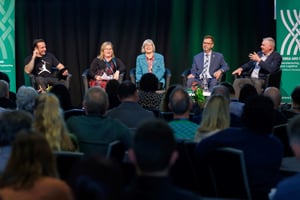.png?width=300&name=residential%20lead%20(2).png)
Lead in residential properties
Protecting people from lead exposure
Protecting people and specifically children from exposure to lead is important to lifelong good health.
Lead is a contaminant that affects multiple parts of the body. There is no level of exposure to lead that is known to be without harmful effects.
If left undetected and untreated, lead exposure in children can have irreversible neurobehavioral and developmental effects, causing learning and behavioural problems that continue into adulthood.
Internationally, lead exposure remains a significant public health concern with high exposure associated with multiple facets of inequality.
In New Zealand, the dominant exposure to lead in a residential environment, is via the historical use of lead-based paints. When old paint is being removed, lead may settle in dust or soil. Contaminated land investigations provide clear evidence of the relationship between housing age and elevated soil lead concentrations. However, exposure to lead is challenging to detect based on health symptoms alone and lead exposure in New Zealand is therefore likely to be under-estimated.
For more information on lead and its effects on health please see:

About the WasteMINZ Residential Lead Working Group
The WasteMINZ Residential lead working group was formed in 2018 and includes representative from the health and public health sectors, lead awareness advocates, environmental consultants, local government and the paint retail and trade industries.
The group is concerned with the undetermined magnitude of health effects from multiple residential (non-occupational) sources of lead. Our purposes are to bring together people to identify and address gaps in the knowledge and practice for the benefit of all New Zealanders.
The WasteMINZ Residential lead working group identified three areas that require urgent action:
- Leadership and coordination: Several entities and individuals have some role in lead exposure management. They are guided by a myriad of legislation and guidance, with no agency accountable for ensuring the whole system works, and no stated goal to protect New Zealanders against exposure to lead.
- Research and monitoring: High level surveillance alongside prevalence testing (in high-risk areas with older housing or other risk factors) is needed to assess children’s current lead exposure. Blood lead level data is poor, almost solely occupational, and completely absent for children under 5.
- Advocacy and proactive measures: Regulation and guidance is sporadic and often outdated. There are opportunities to raise awareness of lead to empower and protect tenants, homeowners, painters and most importantly children.
You can read the group’s position paper regarding exposure to lead in the residential environment here.
Submissions
The Residential Lead Working Group recently submitted to the following consultations:
Residential lead workshop 2023
At the WasteMINZ conference in 2023, the Residential Lead Working Group held an additional day and a half long workshop with presentations around the following topics:
- Overview of the history of lead use and the issues
- Setting the right standards
- New Zealand data
- Management of health impacts
- Industry initiatives
- Future focused solutions and actions





